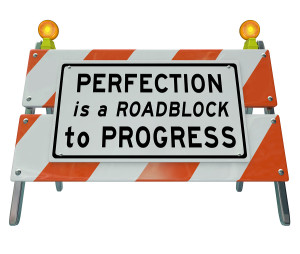
Perfectionist athletes continuously seek to accomplish extremely high standards. They work very hard to improve their techniques and spend countless of hours seeking the edge that will enable them to surpass their competitors. Even if they see progress, they will always see that more improvement is possible. They are quick to see the negative side of their performance and associate any error with mediocrity.
When asked how they are doing, they quickly let us know that had they gotten a bit earlier, or pushed harder at the begging of the race or practiced more intensely, their performance would have been better. It is hard not to agree with them as it is mostly all true that more effort would have probably meant better achievement. One thing is to constantly seek improvement; however, when perfectionism reaches a point where emphasis is on what was wrong and they undermine progress, this maladaptive behavior will most likely push athletes to either burnout or excessive worry. The unconscious fear of being criticize or hearing that he was not good enough will push perfectionists to the brink of leaving the sport all together.
Perfectionists struggle to see the healthy side of progress. They are their worst enemies. The constant comparison against idealistic situations puts them in a situation where regardless of how much of an effort they put it, the effort will never be good enough. It is not surprising that this maladaptive behavior will impact their self-esteem, worthlessness and eventually becoming isolated.
It is quite a challenge to break this cycle, but one strategy to create a change is to help them see what they have accomplished and ask them how they went about it. The goal is to have them explain what they did that enabled them to achieve what they did. In the process, they will start to verbalize self-achievements. The more they can hear themselves saying what they did right, the more likely they will begin to see that they actually owned their achievements to something they did. Rather than minimizing progress, they will begin to see that they efforts actually contributed to they success.
When they do not meet their expectations, do not just say to them that they will get it next time. In fact, this is exactly what they are thinking, which is causing further stress. On the other hand, ask them how they are using mental strategies to navigate their progress. Shifting the attention to something they can control will help them to practice mental approaches that will help them to manage the stress of performance.



